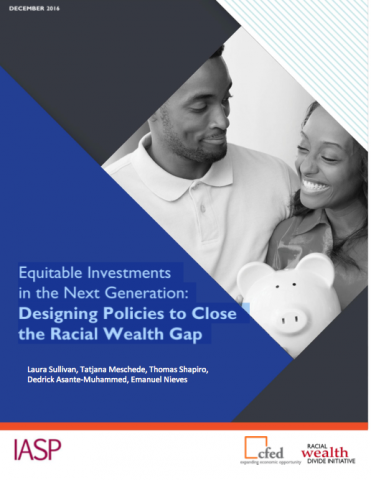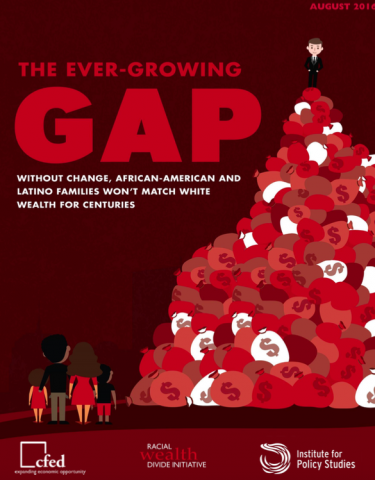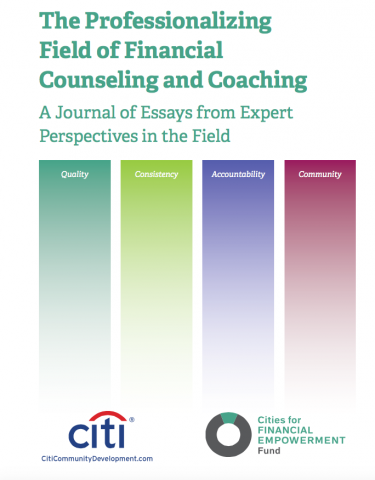Median Latino and Black households have over $100,000 less in wealth than median White households, a disparity that persists despite reductions in income inequality. This new report from the Institute on Assets and Social Policy and CFED puts forward a “racial wealth audit” framework, assessing how specific policies either lessen or inadvertently perpetuate the racial wealth gap. The authors call for “targeted universalism” noting that policies such as Children’s Savings Account and eliminating student debt will only successfully address the racial wealth gap if they focus in particular on low income households.



